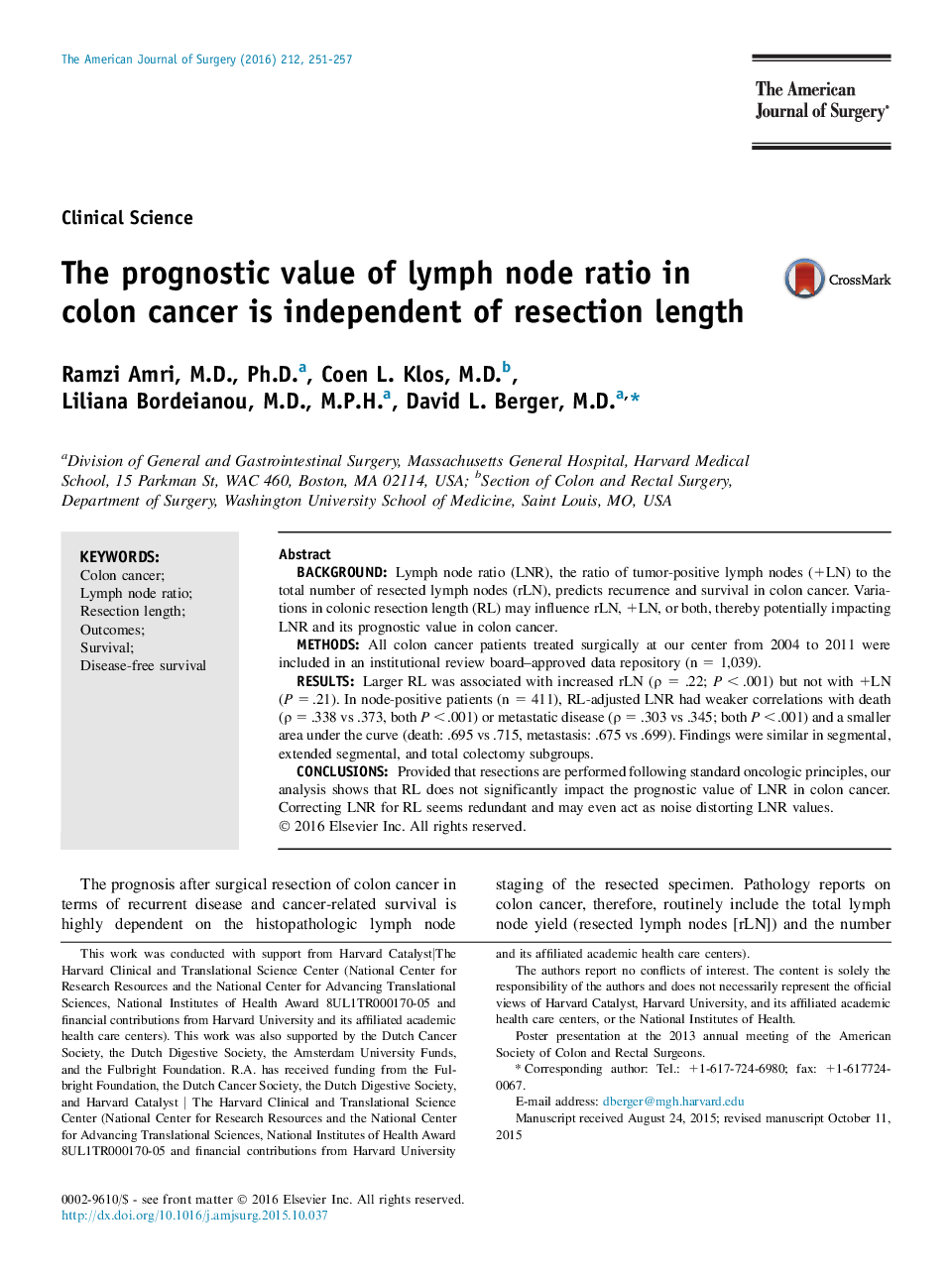| Article ID | Journal | Published Year | Pages | File Type |
|---|---|---|---|---|
| 6250284 | The American Journal of Surgery | 2016 | 7 Pages |
â¢Cohort review of 1,039 operative colon cancer patients at a single center (2004 to 2011).â¢Assessing if resection length (RL) impacts prognostic value of lymph node ratio (LNR).â¢If resections are performed adequately, RL doesn't impact the prognostic value of LNR.â¢Correcting LNR for RL seems redundant and may even act as noise distorting LNR values.
BackgroundLymph node ratio (LNR), the ratio of tumor-positive lymph nodes (+LN) to the total number of resected lymph nodes (rLN), predicts recurrence and survival in colon cancer. Variations in colonic resection length (RL) may influence rLN, +LN, or both, thereby potentially impacting LNR and its prognostic value in colon cancer.MethodsAll colon cancer patients treated surgically at our center from 2004 to 2011 were included in an institutional review board-approved data repository (n = 1,039).ResultsLarger RL was associated with increased rLN (Ï = .22; P < .001) but not with +LN (PÂ =Â .21). In node-positive patients (n = 411), RL-adjusted LNR had weaker correlations with death (Ï = .338 vs .373, both P < .001) or metastatic disease (Ï = .303 vs .345; both P < .001) and a smaller area under the curve (death: .695 vs .715, metastasis: .675 vs .699). Findings were similar in segmental, extended segmental, and total colectomy subgroups.ConclusionsProvided that resections are performed following standard oncologic principles, our analysis shows that RL does not significantly impact the prognostic value of LNR in colon cancer. Correcting LNR for RL seems redundant and may even act as noise distorting LNR values.
